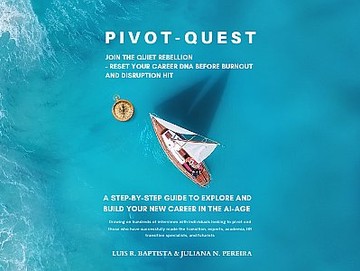And not completely suck at it.
By Lee Constantine
“I have a little office in the basement of our house. It’s partly underground, so it’s cold and dark and gloomy, and therefore perfectly, appropriately creepy for my work. I drink a pot of coffee and begin my day. I do most of my thinking about a book by scrawling on big yellow legal notepads — there’s something about handwriting that loosens up my brain. Lots of doodling and cursiving of key words. It’s very, very free form. Occasionally, I’ll think of a character trait or some key phrase about a character I find really useful, and I’ll rip off the sheet of paper and tape it to the wall of my office. I do my actual writing on a laptop. Since Gone Girl is such a bit of clockwork — who is telling what lie to whom and when — I kept a timeline. Ay time I found a fact I needed to double check — dates of times or feasibility — I’d write on an index card and tape that to my wall too. That’s my weird filing system. By the end of writing Gone Girl, my office looked like the lair of a serial killer. Crazy words and questions fluttering from every surface.”
^That’s how Gillian Flynn physically writes a book.

If you’re an an author, a writer, you’re already benchmarking this process against your own. You’re also considering whether Gillian Flynn is a good enough writer whose habits you could deem worthy of mimicking. And if you don’t know who Gillian Flynn is then you may re-consider being an author/writer in the first place.
I’m very serious.
Anyways… Writing a book is one of the most fun and rewarding experiences there is. It’s also serious work, a task of sorts, that requires discipline and practice. A lot of writers suck at discipline. Admit that you need all the help you can get to push out words and ideas that actually mean something to people, your readers. You can learn. And when you do finish your masterpiece, “It pays off intellectually. It clarifies your thinking. It builds credibility. It is a living engine of marketing and idea spreading, working every day to deliver your message with authority,” Seth Godin pledges.
To write a book requires you to:
Disconnect from the physical world.
“Writing is solitary.” People love to say this, especially non-writers, so I often roll my eyes harder when I hear it fall off their tongues. Probably because they are right. You have to find your spot; your place of productivity. I often find myself driving around town looking for the perfect place to write my next piece or finish my last draft. And I usually settle on the same exact spot as last time.
For Stephen King, it’s anywhere without distractions. “No television and no cell phone in the room,” and no directionless browsing of the internet during his writing episodes. For Seth Godin, it’s at the airport or on his next flight. His notorious pre-game writing ritual is “getting through the TSA security theater.” For Gillian Flynn, this is the dark and gloomy office in her basement.
Finding this place isn’t easy. Sometimes it’s not even in your hometown. New places ignite your creativity and productivity in ways you don’t expect. Go to Paris, to experience the culture, study the great writers from the past (whose words will never die) and the writing locales they designated their own. Elizabeth Gilbert ventured to Ubud, Indonesia, to research, explore and write her book, Eat Pray Love. According to the locals who met her, Gilbert was a rather quiet woman, not abnormal or larger than life. Her experiences were what they were because she carved her own path not one already written for her. Go somewhere to bring out the best in you.
Spark a bit of magic.
Stephen King, in his 20 rules for writers, declares that writing is really about experiencing something magical — and perhaps creating some magic in the process. “Writing isn’t about making money, getting famous, getting dates, getting laid or making friends. Writing is magic, as much as the water of life as any other creative art. The water is free. So drink.”
If you seek magical experiences, you’re likely to spark them everywhere you go and in everything you write.
Set deadlines.
The deadline focuses the mind, of course. The curse of the traditional writer is that the publisher wants a book no more often than once a year. So procrastination is part of the process. Here’s where that word disciplinecomes up most often. Deadlines drive productivity because they enforce writing. Writing isn’t always a fun and motivating event. Ask any writer. You have to try. You have to make time to write. And you have to set deadlines.
When you’re writing a book, you need a routine. Routine hits deadlines. But those routines also need breaks. Sometimes hours, days or even weeks are a particular part of the grind. But blogging? Once a day. Not every minute like Twitter, which provokes mediocre writing because there’s so much of it. But every day? Better write something, better make it good. This exercises the mind and keeps your writing solid. It also shows your work and builds an audience.
Share your work.
“There’s nothing passive about what we do,” says Jon Westenberg. “When we make content, that’s not the end of the road. We don’t sign off on it like our work is done, we’re only at the earliest stage of what we’re about to do. We’ve still got to get out there and make people care.” If you think people won’t be interested in what you’ve written, then you’re not ready to become a bestselling author.
Authors, especially fiction authors, are not sold on the idea of self-promotion. They are scared to share their writing with people because of the criticism they’ll get. Which is actually the most counter-productive thing you could do as a writer. Ironically, a book for people who hate the very idea of self-promotion, Show Your Work! by New York Times best-selling authorAustin Kleon, is about how to deal with the ups and downs of putting yourself and your work out in the world.
Or if you’re like Dan Cleland, you can just have Tucker Max and his astute team of editors write the book for you.
Cheers.

